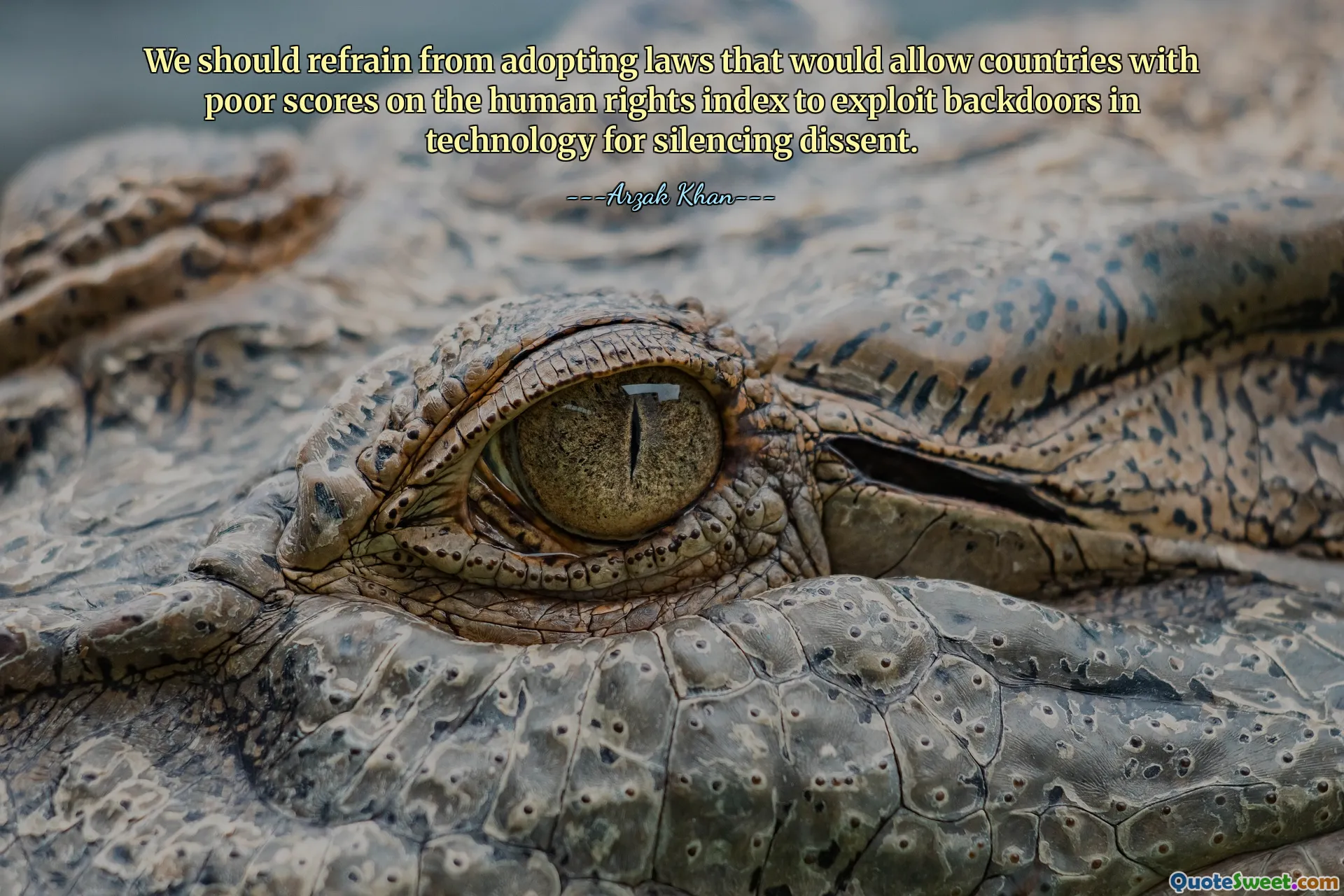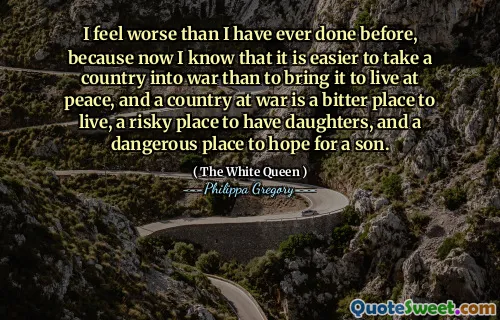
We should refrain from adopting laws that would allow countries with poor scores on the human rights index to exploit backdoors in technology for silencing dissent.
The quote touches on the critical intersection of human rights and technology policy, emphasizing the dangers of enabling oppressive regimes through legal loopholes. Implementing laws that give governments unjustified access to backdoors can be seen as a double-edged sword; while perhaps intended for legitimate security purposes, they often serve as tools for suppression and censorship in countries with poor human rights records. In such contexts, authorities might leverage these backdoors to monitor, intimidate, and silence dissenters, thereby undermining fundamental freedoms of speech and privacy. This remark prompts us to consider the ethical implications of policy choices—balancing national security concerns with individual rights. It underscores the importance of safeguarding privacy and civil liberties, especially when vulnerable populations are at risk of repression. Furthermore, the quote advocates for moral responsibility on the part of lawmakers and international communities to prevent the normalization of surveillance practices that could be exploited by authoritarian regimes. Technology should empower societies, not serve as instruments of control. International legal frameworks and technological safeguards must prioritize human rights, ensuring that advancements do not come at the expense of personal freedoms. Ultimately, the quote highlights a vital principle: the development and regulation of technology should be deeply rooted in respect for human dignity and freedom, regardless of a nation's internal metrics of rights and governance.











